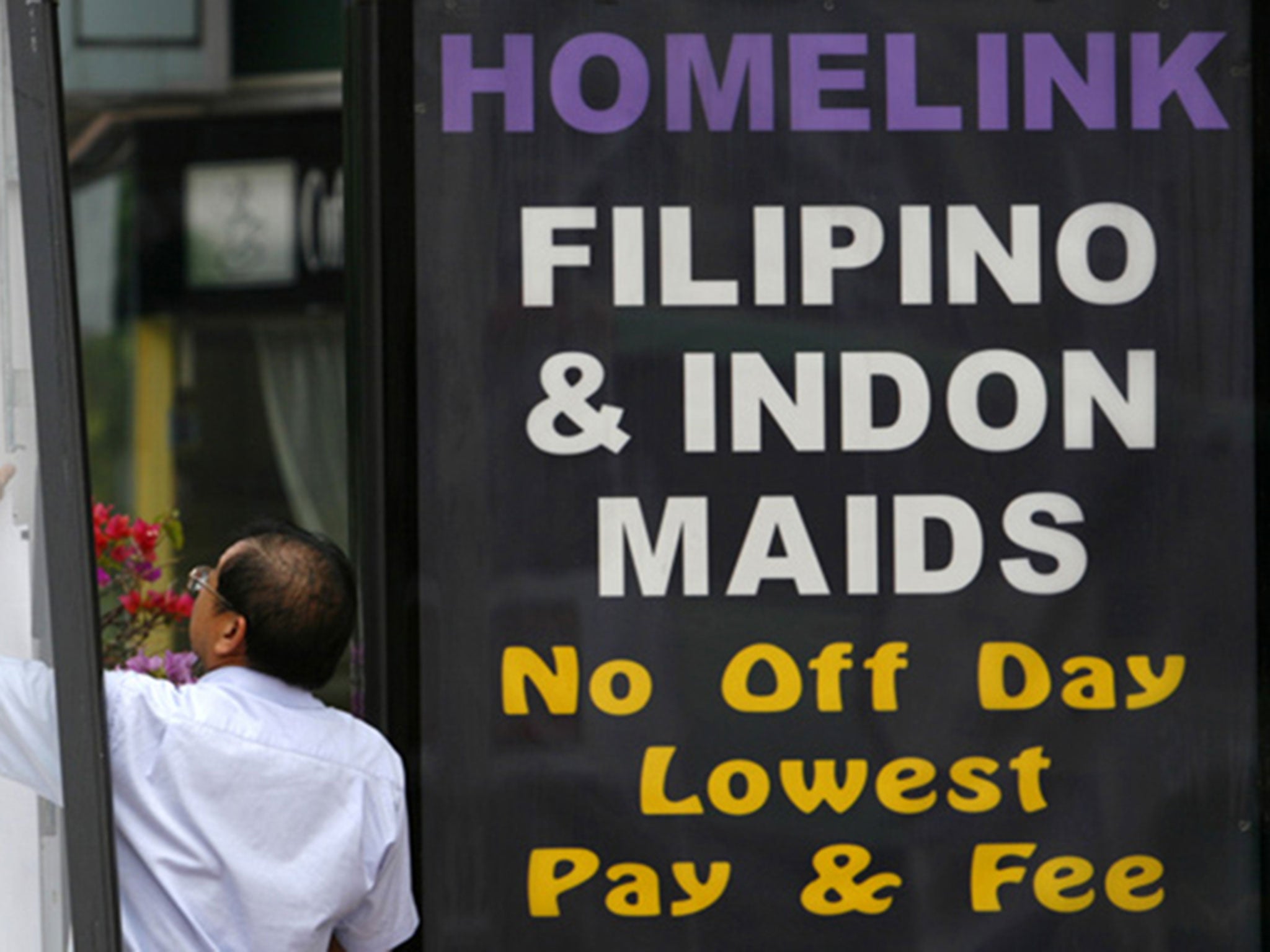Modern-day slavery? Shopping mall in Singapore found to be selling housemaids like commodities
Bukit Timah Shopping Centre has its maids standing under signs that offer low prices and maids that are willing to work without a day off

A shopping mall in Singapore is believed to be selling Housemaids as if they were commodities, according to reports.
An investigation by Al Jazeera has found that the Bukit Timah Shopping Centre situated in the South East Asian nation is known for selling women mainly from neighbouring Indonesia, the Phillipines and Myanmar, as if they were shoes or home ware.
Witnesses say women in the Shopping Centre, stand beneath signs such as “Homekeeper” and “Budget Maid” with the hope that a shopper might buy their services.
These maid agencies have the women ironing shirts over and over, cradling fake babies and pushing wheelchairs to show they can care for the elderly, with the hope that this make might them more attractive to a potential buyer.
Others are marketed by racial stereotypes, with Filipinos advertised as being smarter maids, while a Burmese maid is seen as compliant.
On some of the signs advertising these women they say “Filipino and Indon Maids: No Off Day Lowest Pay and Fee.”
Jolovan Wham, executive director of the Humanitarian Organisation of Migration Economics), a migrant workers advocacy group based in Singapore, told Al Jazeera that a number of agencies market their domestic workers like "commodities".
According to Wham, this is not a new phenomenon either and has been going on for years in Singapore and is a multi-million pound industry.
Estimates say that almost 214,000 live-in maids are employed in Singapore, and while many of them are treated well, there are a number that are exploited by their owners.
Most of these maids come to Singapore from the poorest areas of the neighbouring countries with the hope of earning money for their family back home. However, with placement fees having to be paid to be set up in the country many find themselves in constant debt and with very little option but to stay in their situation.
Shelley Thio at Transient Workers Count Too sometimes women rack up debts of up to $4,500 and are unable to escape.
She said: "The worker pays these fees because she feels that she doesn't have a choice. And our laws do not make it mandatory for employers to bear the bulk of the fees."
Join our commenting forum
Join thought-provoking conversations, follow other Independent readers and see their replies
Comments